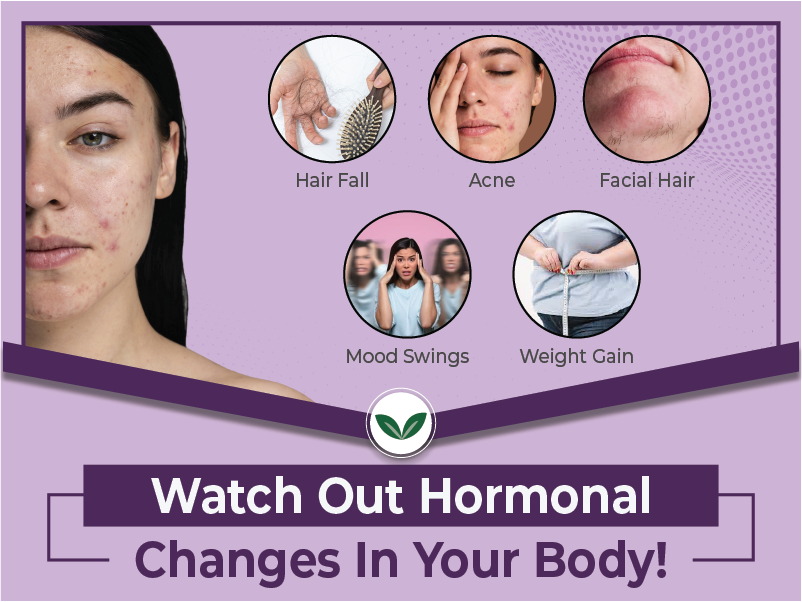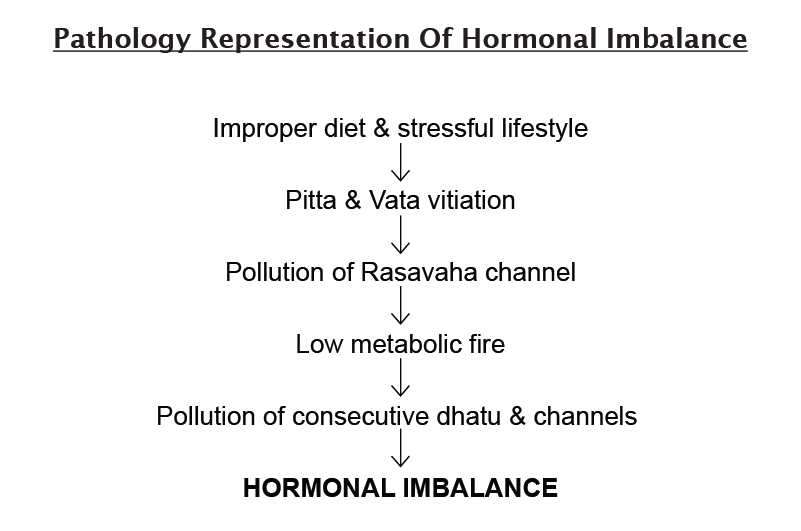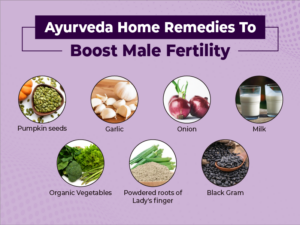
Everyone has probably experienced hormonal imbalance at some point in their lives. Both men and women undergo hormonal changes during puberty, but female hormones are more likely to go haywire during puberty, menstruation, pregnancy, childbirth, breastfeeding, and other times.
Consistent symptoms of hormonal imbalance include bloating, fatigue, irritability, hair loss, palpitations, mood swings, uncontrolled blood sugar levels, and difficulty in concentrating.
Hormonal balance is crucial to our overall health and our mind and body functions.
Hormonal balance is essential for optimal energy, regular periods, sound sleep, glowing skin, healthy hair, and a calm mind.
These days, hormonal imbalances can be caused by stress, a sedentary lifestyle, unhealthy eating habits, sleeping during the day, staying up late at night, frequently worrying, not giving yourself enough time, having a negative mindset, or any number of other factors, including puberty, pregnancy, postpartum, menopause (for women).
Ayurveda Perspective on Hormonal Imbalance
Improper lifestyle and food habits leads to aggravation of Pitta and Vata. Excess Vata circulates all over the body showing symptoms like mood swing. Aggravated Pitta causes disturbances in deep tissue metabolism & thus changes in hormonal levels are noted. These hormonal changes induce swelling in tissues, hair fall, acne.
What are the signs and symptoms of Hormonal Imbalance?
- Unwanted hair growth on face
- Mood swings
- Hair fall
- Water retention
- Acne
- Loss of muscle mass
- Decreased sex drive
- Infertility
What causes Hormonal Imbalance?
- Excessive intake of salty, sour, heavy, pungent, burning and fatty things.
- Intake fatty meat of domestic and aquatic animals.
- Rice cooked with pulses (krushara)
- Rice cocked with milk (payasa)
- Excessive intake of curd
- Excessive intake of shukta (vinegar)
- Excessive intake of Curd water
- Natural amenorrhea because of pregnancy, breast-feeding and menopause
- Contraceptives
- Chronic or extreme stress
- Type 1 and type 2 diabetes
- Thyroid
- Over- or underproduction of the parathyroid hormone
- Poor diet and nutrition
- Being overweight
- Abuse of anabolic steroid medications
- Cushing’s syndrome (high levels of the hormone cortisol)
- Addison’s disease (low levels of cortisol and aldosterone)
- Iodine deficiency (goiters)
- Hereditary pancreatitis
- Turner syndrome (females with only one functioning x chromosome)
- Prader-willi syndrome
- Anorexia
- Phytoestrogens, naturally-occurring plant estrogens found in soy products
- Exposure to toxins, pollutants, and endocrine disrupting chemicals, including pesticides and herbicides

Understanding the Types of Hormones:
Different hormones can cause various health conditions.
Cortisol
Our adrenal glands produce cortisol. It is the body’s principal stress hormone. Adrenal fatigue occurs when there is an imbalance in the cortisol cycle. It is possible to notice the following signs and symptoms:
- A slow start in the morning
- Cravings for sweet or salty food items
- Low sexual drive
- Dizziness while standing quickly
- Constant inflammation of the weak nails
- Difficult to lose weight
Thyroid
Every cell in your body requires thyroid hormones to function correctly. A thyroid hormone imbalance can cause:
- Fatigue
- Coldness on your feet, hands or throughout the body
- Makes you sleepy
- Weight gain even when you are eating a low-calorie diet, painful diuresis,
- Morning headaches that fade with time,
- The loss of hair on your scalp, excess hair falling off dry skin.
Estrogen
The proportion of the three estrogen types, i.e. estrone (E1) and estradiol (E2) and Estriol (E3), is vital for both men and women. People with low Estrogen can experience the following:
- Dry vaginal areas
- Night sweats
- Painful sexual contact
- Recurring bladder infections
- Hot flashes
A person with high estrogen levels may experience the following:
- Bloated and puffy with rapid weight gain
- Mood swings
- Breast tenderness
- Heavy menstrual bleeding
- Depressed or anxious
- Migraine headaches, ad anxiety
- Gallbladder issues.
Progesterone
Both women and men require balanced progesterone levels. Progesterone helps balance and neutralize the adverse effects of excess Estrogen. Progesterone imbalance can cause:
- PMS
- Insomnia
- Irritable-looking skin and breast pain
- Weight growth
- Headaches
- Anxiety
- Infertility
Testosterone
Both in women and men, Low testosterone levels are something that can be observed often. The low testosterone level in women has been linked in a few studies to the inability to have sex, heart disease, and breast cancer.
Females with high testosterone levels are prone to:
- Acne
- Polycystic ovarian syndrome ( PCOS)
- Excessive hair on the arms and face
- Hypoglycemia
- Unstable blood sugar levels
- Thinning hair
- Ovarian cysts
- Infertility
Females with low testosterone levels can experience fatigue, weight gain and a low sexual drive.
Testosterone imbalance in men can result in erectile dysfunction. It can also cause low sex drive and weight gain, as well as anxiety and breast expansion.
Leptin
The fat cells produce the hormone leptin. Leptin’s primary function is to instruct your brain to use the body’s fat stores to generate energy. Resistance to leptin results when leptin’s signal is not recognized by your body, specifically the hypothalamic cells in your brain.
Leptin imbalance causes you to be overweight, and you aren’t able to lose weight fast, but you are plagued by frequent food cravings and stress.
Insulin
Many people are aware of insulin resistance related to type 2 diabetes. However, this resistance is also observed in many patients who have not advanced into full-blown type 2 diabetes. This prediabetic metabolic syndrome is defined by insulin resistance. It means your body produces insulin, but it isn’t making it useable. Insulin Imbalance can cause:
- cravings for sweets
- caffeine dependence and caffeine
- irritability or anxiety
- poor memory
- tiredness
- blurred vision
- waist size is the same or greater than the hip circumference
- frequent urination
- an increase in appetite and thirst
- difficult to lose weight
The Ayurveda expert says restoring hormonal balance can be helped by following your circadian rhythm, eating at the right time, going to bed early, exercising, and practising relaxation techniques.
Top 10 tips for maintaining hormones balance:
- Fasting in the circadian rhythm: getting up early, eating breakfast after sunrise, having dinner before sunset, and going to bed early.
- Managing anxiety: Keeping your stress levels under control is the best way to speed up your healing process.
- Organizing your meals: It can make a big difference if you eat breakfast, lunch, and dinner simultaneously.
- Sleeping soundly: Sleeping well is the best way to maintain hormone balance, boost metabolism, detoxify the liver effectively, and have radiant skin, among other benefits. By 10 p.m., you should be asleep. The best for optimal health is 7 to 8 hours of sleep between 10 and 6.
- Regular exercise: Moving around improves blood circulation, which in turn helps you eat well.
- Being a regular meditator: Meditation can help you regulate your hormones and maintain calm.
- Practise Seed cycling: Seed cycling is eating specific seeds during your menstrual cycle’s follicular and luteal phases. It helps to maintain a healthy balance between estrogen and progesterone.
- Mindful eating without guilt
- Good nutrition: The symptoms of vitamin deficiency include weakness, anaemia, receding hair, and mood swings.
- Use healthy cookware like kansa metal.
Takeaway:
Hormonal balance is very easy to maintain if you understand your body, learn to listen to it, and feed it appropriately. In addition, restoring hormonal balance requires mental calmness. That’s why it’s so important to control your stress.
For powerful health transformation stories, subscribe to the Ayushakti YouTube channel: https://www.youtube.com/user/AyushaktiTV
For regular health tips & updates visit Ayushakti’s Social Media Pages:
- Facebook – Ayushakti Ayurved | Facebook
- Instagram – Ayushakti Ayurved (@ayushakti)
- Pinterest – ayushaktiayurveda
Get all the updates about Ayushakti Ayurved on WhatsApp directly. Click here to Join our WhatsApp Channel
Ayushakti’s mission is to help people in every way possible. Our Ayurvedic experts are available to give you a consultation either over the phone or through a video consultation. We recommend customised diets, home remedies, and detox therapies to help you find long-term relief from health problems. Book your consultation here: https://bit.ly/48JjkIF
If you would like to know the location or visit one of our centres, please click here: https://www.ayushakti.com/home/p/contact
For more information, write to us at info@ayushakti.com. You can contact us on our toll-free numbers – 18002663001 (India) & +18002800906 (Global).
Blog Author: Dr Ashwini Borate
Expert Review: Dr Smita Pankaj Naram
Co-Founder, Ayushakti Ayurved Pvt Ltd
Disclaimer: This blog is for educational purposes only. Please consult an Ayurvedic practitioner before trying or consuming any medicines, home remedies or treatments mentioned in this blog. The information provided is not intended to diagnose, treat, cure, or prevent any disease.









